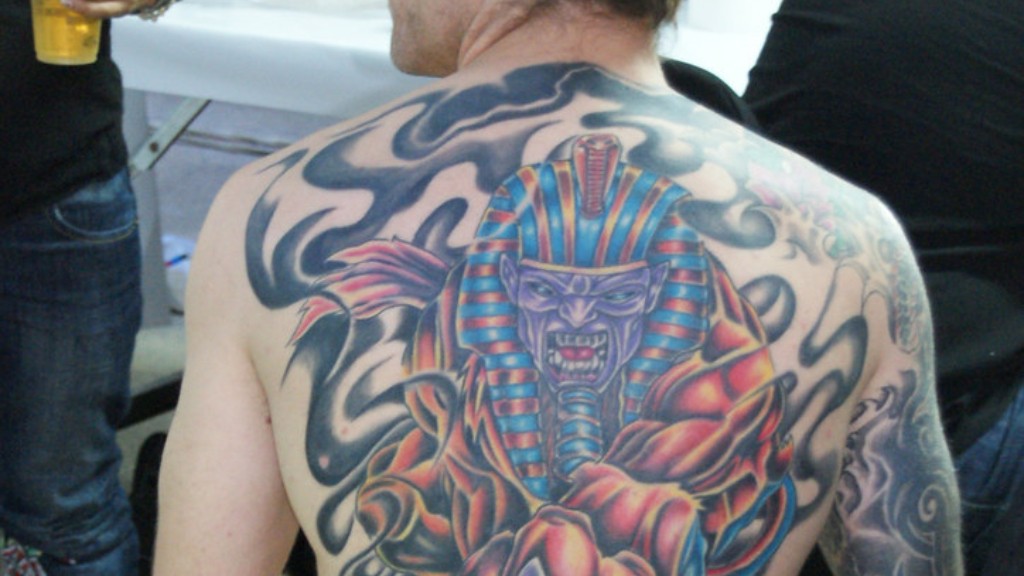Being a tattoo artist is no small feat. It requires skill, creativity, and a strong passion for the art of tattooing. If you’ve ever wondered what it takes to become a tattoo artist, look no further. In this article, we’ll dive into the world of tattooing, uncovering the traits and qualities that set successful tattoo artists apart from the rest.
First and foremost, a tattoo artist must possess exceptional artistic ability. They need to have a keen eye for detail and the ability to transform their clients’ ideas into stunning works of art. Tattooing is not just about placing ink on skin; it’s about creating something unique and meaningful. It’s about bringing a vision to life. Tattoo artists are the architects of human canvas, crafting stories and emotions with every stroke of their tattoo machine.
Flexibility and adaptability are also crucial traits for a tattoo artist. No two clients are the same, and no two tattoos are identical. Artists must be able to cater to a wide range of requests, from small, delicate designs to large, elaborate masterpieces. They must be open to new styles and techniques, constantly evolving and pushing their boundaries. Tattooing is an ever-changing industry, and successful artists stay ahead of the curve.
Another important quality of a tattoo artist is the ability to connect with their clients on a deep level. Tattoos are personal and intimate, often representing important milestones or moments in someone’s life. A good tattoo artist listens, understands, and empathizes with their clients’ stories. They create a safe space for self-expression, ensuring that their clients feel comfortable and valued throughout the entire tattooing process.
Now, let’s talk about perseverance. Tattooing is not an easy path to walk. It requires long hours, steady hands, and a strong work ethic. Artists must be willing to put in the time and effort to perfect their craft. They must push through the challenges and setbacks, never losing sight of their ultimate goal. It’s not uncommon for aspiring tattoo artists to spend years as apprentices, honing their skills and learning from experienced mentors. This dedication and perseverance are what set the true artists apart from the dreamers.
Section 1: Skills and Techniques
When it comes to tattooing, technical expertise is the foundation of success. A good tattoo artist possesses a vast array of skills and techniques, from outlining and shading to color blending and precision linework. They know how to handle the tattoo machine with finesse, ensuring clean and crisp lines. Additionally, a mastery of color theory is essential for creating vibrant and visually appealing tattoos.
A tattoo artist must also have a strong understanding of human anatomy. They need to know how the body moves, bends, and stretches to ensure that the tattoo design flows seamlessly with the natural curves and contours. Without this knowledge, a tattoo can look distorted or awkward.
Tattoo artists often invest countless hours into perfecting their skills. They practice on synthetic skin, experiment with different inks and needles, and seek feedback from their peers. They constantly strive for improvement and innovation, refusing to settle for mediocrity. In the world of tattooing, skill is everything.
Section 2: Hygiene and Safety
Hygiene and safety are of utmost importance in the tattooing industry. A responsible tattoo artist follows strict hygiene protocols to prevent infection and ensure the well-being of their clients. They maintain a clean and sterile working environment, sterilizing their equipment and using disposable, single-use needles. They also educate their clients on proper aftercare to promote healing and minimize the risk of complications.
To further prioritize safety, tattoo artists stay updated on the latest health regulations and maintain compliance with local laws. They attend seminars, workshops, and conferences to expand their knowledge and skills in this crucial area.
Section 3: Business and Communication
Being a successful tattoo artist involves more than just artistic talent. It requires strong business acumen and effective communication skills. Artists must be able to market themselves, attract clients, and manage the financial aspects of their business. They need to master the art of customer service, building trust and loyalty with their clients.
Additionally, tattoo artists must be skilled communicators. They need to listen carefully to their clients’ desires, understanding their vision and translating it into a design that exceeds expectations. Clear communication throughout the tattooing process is crucial to ensure satisfaction and avoid misunderstandings.
Section 4: Passion and Authenticity
Above all, a tattoo artist must have an unwavering passion for their craft. Tattooing requires long hours of focused concentration, and without a genuine love for the art, it can quickly become exhausting. Passion fuels creativity and allows artists to push boundaries and explore new artistic territories.
Furthermore, successful tattoo artists bring their unique authenticity to their work. They have a distinctive style that sets them apart from others in the industry. They infuse their tattoos with their personal touch, creating art that resonates deeply with their clients. This authenticity and originality are what make their tattoos stand out and leave a lasting impression.
In conclusion, becoming a tattoo artist is a journey that requires a combination of artistic skill, adaptability, strong interpersonal skills, perseverance, technical expertise, hygiene and safety understanding, business knowledge, effective communication, passion, and authenticity. It is a demanding yet rewarding profession that allows individuals to leave a permanent mark on people’s lives. So, if you dream of becoming a tattoo artist, embrace your passion, sharpen your skills, and let your art speak volumes.




